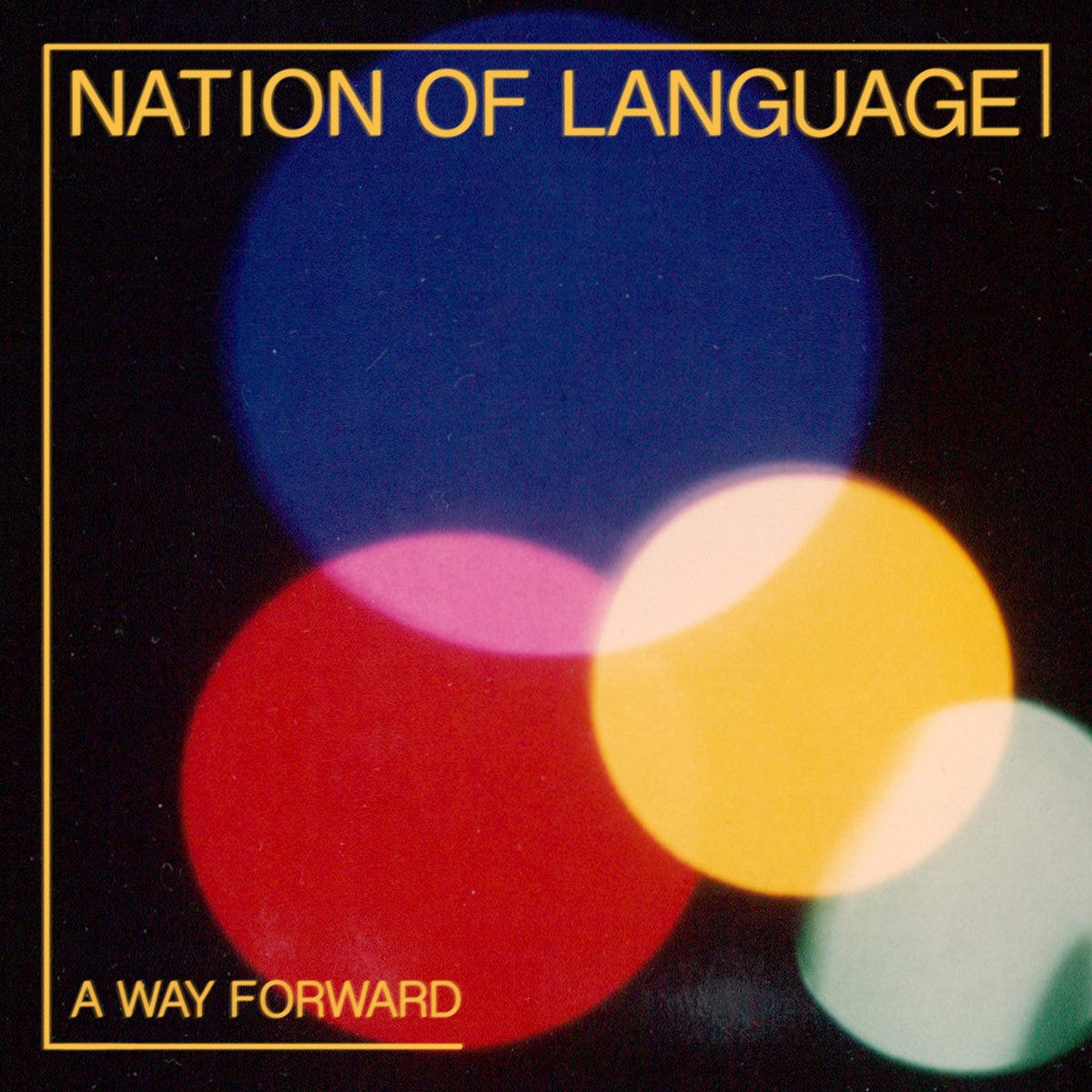Nation of Language Dive Deeper Into Their Synth Pop Influences on 'A Way Forward'
A quick year after their excellent new wave debut, the Brooklyn trio fully embraces krautrock.
If you enjoy this review, please consider sharing or subscribing to Check This Out! and you’ll receive fresh tunes to your inbox twice weekly.
I will always hold a special place for Introduction, Presence, the debut from Brooklyn’s Nation of Language.
A year ago tomorrow, I posted a review for the record on medium.com, a spot with little music content. I was dealing with the pandemic fallout in my previous career and knew I had to get back to my writing roots and love of finding aural nuggets. While planning what would eventually become Check This Out!, Introduction, Presence was one of those early albums that inspired me to get back into things (you can read the review here, now archived for this site).
Introduction, Presence was also a desperate move for the band, as leader Ian Richard Devaney had been navigating lineup changes and dead-end jobs while establishing Nation of Language. After meeting Aiden Noell while on tour, Devaney asked her to join him along with bassist Michael Sue-Poi, even though she had never played synths before. Noell quickly learned the parts, and the two were married, skipping a registry to ask for money to record their album instead. Full of New Order-influenced new wave gems, Introduction, Presence was a phenomenal debut that looked to the ’80s without lazily aping the genre entirely.
Now a year later, the retro-leaning trio is back with A Way Forward, a cheeky name for an album that digs further back into synth pop’s influences. Devaney’s knack for soaring choruses is still there, but this time around, they are mostly floating over synth loop-driven krautrock a la Kraftwerk. While the pandemic delayed the release of their debut, A Way Forward was wholly written and recorded during the shuttered past year, giving it a more taut feel. The compact sound also comes from the group’s decision to use a smaller arsenal of instruments to achieve the early-70s krautrock sound accurately. Mostly forgoing modern synths, the record features the Mini Moog in abundance.
“In Manhattan” is a strong song to pull the listener into the album, featuring a synth loop that ricochets around the click track. While there’s a lifting feel to the song, Devaney counters the music by dropping some New York Realness™ singing, “strung along by a fiction, read it all in a magazine, strung along by a fiction, from a movie screen, in Manhattan, you cannot have it all.” Continuing a healthy A-side, “Across That Fine Line” and “Wounds of Love” are sure to be some of the finer singles of the year. “Across That Fine Line” features a rare wash of guitar, as well as a grooving bass line from Sue-Poi, something that made Introduction, Presence so enjoyable. At only two albums in, “Wounds of Love” is already a quintessential Nation of Language song with its warm, laid-back groove.
“The Grey Commute” is an LCD Soundsystem-esque head bopper that works a statement against blind capitalism, with Devaney singing, “and there’s a foot on your throat, that you’re fighting to undermine, there’s gonna come a time, they’ll get what they’re owed, it’s a crime.” All of these synthesized meditations build to “A Word & a Wave” and “They’re Beckoning,” with the latter teasing a dungeon synth melody in the verse and a ticking clock that hints at the mortality-themed lyrics.
A Way Forward is not as immediately contagious as their debut but is highly rewarding when given the proper time and spins. Nation of Language deserves a round of applause for not making the same record again, as is the case with many synth-driven bands. All of their successful elements are here, but the vision is more themed this time, as they give an ace outing of the krautrock sound they set out to achieve.



